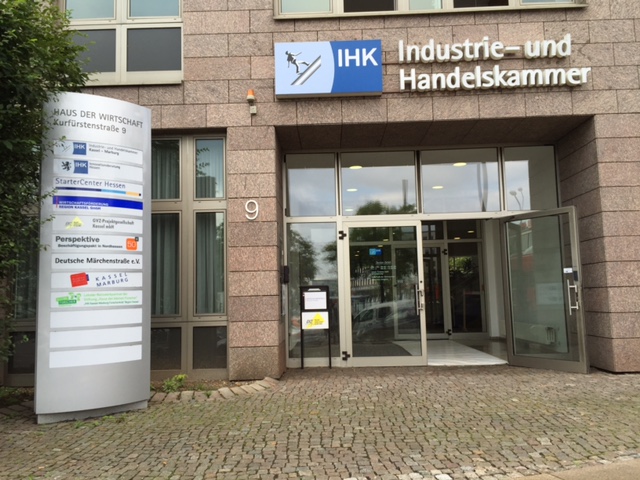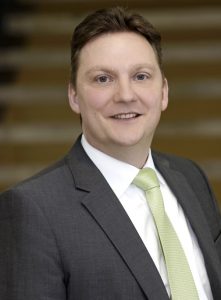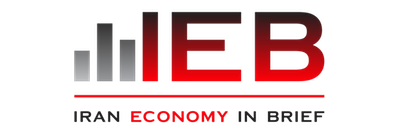

Since Iran and the P5+1 reached a nuclear deal, Tehran has welcomed many Western business delegations. A German trade team, which included the minister of economic affairs, was among these business delegations. When business comes to the international scale, the chambers of commerce become one of the main players to build networks for business leaders. In the city of Kassel, we met Mr. Kai Wittrock, the managing director of a regional commercial organization in Hessen, to ask him more about the recent developments.
M.K.: Mr. Wittrock how do you evaluate the recent visit of the German minister of economic affairs to Tehran?
WITTROCK: There is no doubt that a country’s economic success is dovetailed with the success of its companies. The role of organizations like ours and at a higher level, chamber of commerce, is to assist these economic activists to reach this goal.
For many German companies, the recent news of the ‘nu- clear deal’ has strengthened hopes to resume activities with Iranian companies as well as investors. As a regional player in Germany, we might not be as quick as the minister, but we definitely would try to be similarly fast to rebuild our connections and help regional companies to be able to resume business in Iran and vice versa.
Is building networks and opening new doors to the companies in the region one of the services you offer to your clients?
Yes, one part of the services we offer the companies includes consultancy regarding their legal, financing or taxation questions. The second one is helping them find proper locations to establish their firm or office and the third one, which we call ‘door-opener’, is to connect them to the right partners. This is done through the network we have built be- tween regional, national and international businesses and companies.

Do you have Iranian business leaders in your networks, or any joint work experience?
We regularly organize seminars and conferences with various industrial themes where business leaders from other regions can meet and communicate the possible and potential opportunities. We have experts who are working and studying business in Iran for their companies. We also have many companies in the region which were working in Iran before sanctions and wish to resume their trade.
Are these services accessible to any company, or, it is limited to German companies and investors?
We offer our services to all national and international companies willing to work in the region. For example, if an Iranian company wants to start a business or partnership within Kassel region, it can contact us and we would be happy to assist them as we have the advantage of being close to the Frankfurt area.
What is the role of well-formed infrastructure in attracting the investors to the region?
Of course the more possibilities you offer the investors, the more attracted they become. In this regard, we try to encourage them by providing convenient transportation connections: easy access to highways, high-speed train connections and the Kassel airport facilities, which we work on increasing its international destinations.
What are the preferred industries of your organization or your investors?
In general, we support any company which shows interest in development. However, due to the traditional industries in the region, it might be easier to find opportunities for those companies. The most developed ones are transportation companies, i.e. Mercedes, Volkswagen, train technology companies as well as new energy and Information Technology companies. I should say that the strength and success of these three industrial sectors in the region, is the result of a very tight connection with the University of Kassel.
University of Kassel is one of the top ten universities in Germany and its policies toward ‘applied science’ had great influence on the regional development.
Did this collaboration with the University of Kassel give birth to found new companies in the region?
Yes, for example SMA in solar energy and the IT company Micromata, producing ‘barcodes’ for DHL, are the companies founded and incubated at the University of Kassel which are now successful multimillion Euro players in the international business circle.
Do you collaborate with other universities as well?
We are regularly invited to participate in various projects and are actively engaged in seeing these projects. We work with the University of Göttingen, Frankfurt and Advanced School of Mainz and many others in Germany, and also have lots of collaborations with international universities like Tongji University in Shanghai and Shanghai University through a project called ‘Hessen-China Netzwerk’.
Could you imagine collaboration with Iranian universities?
Of course! Development in economy, business and academy are highly correlated. And advancement in one would lead to a forward step in the other. One example would be introducing collaboration with the universities and the tourism sector, by organizing conferences and meetings in different places; always to the benefit of both partners with the goal of introducing both cultures to each other.
Do you also support startups?
Yes, in this part we are very much connected to the university and so far we have been satisfied with what we have achieved. We started a project called ‘crowd-funding’, by sponsoring a platform where people can introduce their new idea and project and assign a certain budget to it with a dead- line. Then any visitor who likes the idea would donate some amount of money as he or she wishes.
If by the deadline the money donated to the project exceeds the required budget, then the fund would go to the entrepreneur, otherwise it would be reimbursed to donors.
Through this platform, many people received the fund to put their ideas into action. And among them some got really considerable amounts like € 160,000 or more.
When your organization was founded in its new form in 1988, how was the economic condition in the region?
When German development began during the 90’s, the unemployment rate in the region was more than 20 per- cent. It was a period when many big companies were adjusting themselves to new business models and emerging markets.
It took some time until they adopted new structures. Many of the big companies we had in the region like Phil- lips, Henschel or AEG were splitting into new smaller companies.
However, at the end of the day, there were many new companies born in the region and the unemployment was reducing. One of the successful models was Henschel; its truck sector went to Mercedes-Benz with about 3,000 employees, its train sector went to Bombardier with about 1,000 employees and so on.
Therefore, a new era began in the region; now as an indicator the unemployment rate is less than seven percent and for export indicators we are above the national average and more than 50 percent of the companies here are export oriented.
Mr. Wittrock, thank you very much for the interview.

Be the first to comment